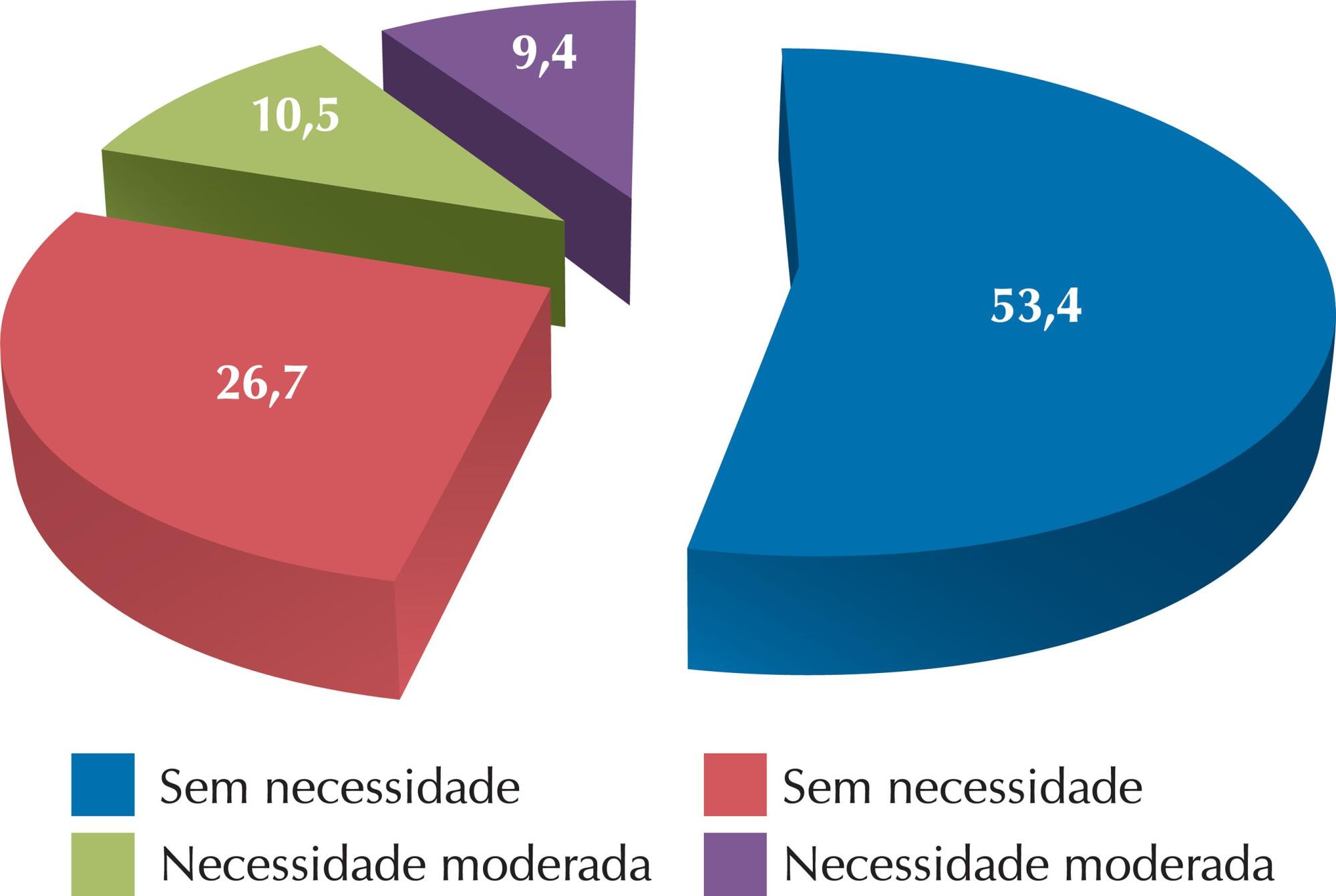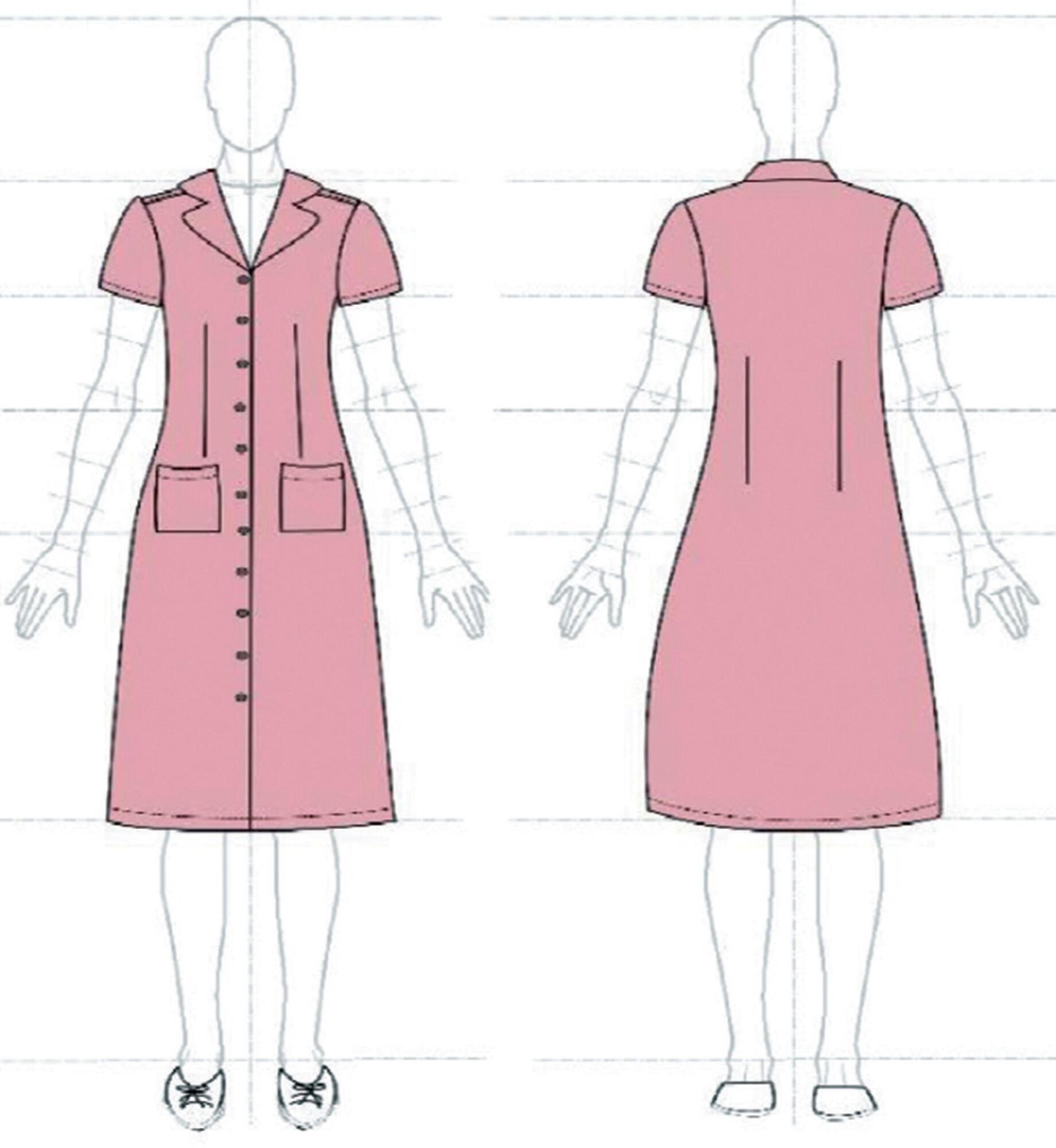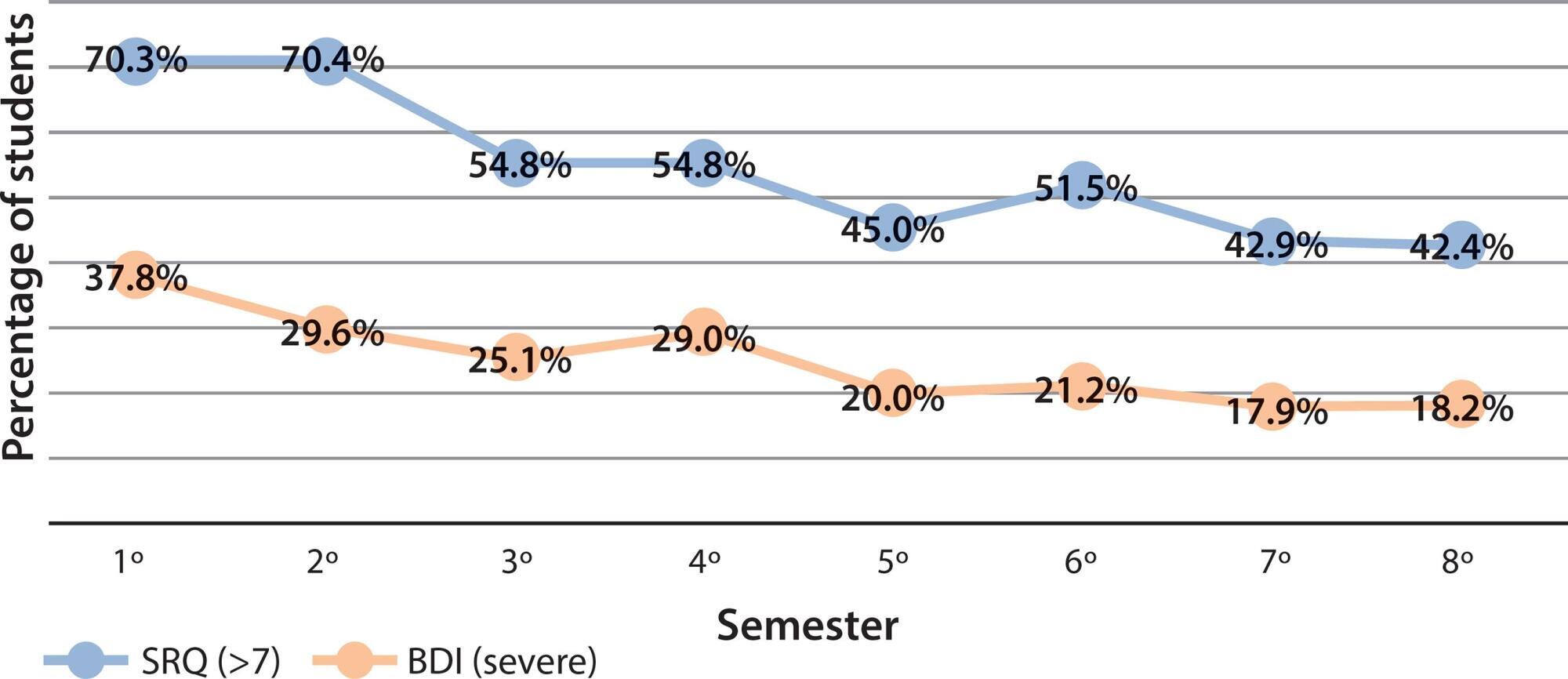-
RESEARCH01-01-2018
Contribution of academic tutoring for the teaching-learning process in Nursing undergraduate studies
Revista Brasileira de Enfermagem. 2018;71:1596-1603
Abstract
RESEARCHContribution of academic tutoring for the teaching-learning process in Nursing undergraduate studies
Revista Brasileira de Enfermagem. 2018;71:1596-1603
DOI 10.1590/0034-7167-2017-0736
Views0See moreABSTRACT
Objective:
to analyze the perceptions of professors and students on academic tutoring.
Method:
descriptive study with a qualitative approach, carried out at the Magalhães Barata School of Nursing, State University of Pará, Brazil. Twenty-seven professors and 32 students participated in the study. Data were collected through semi-structured and individual interviews, using different scripts for professors and students. For analysis, the technique of content analysis was used.
Results:
we defined three thematic categories: academic tutoring as a tool for strengthening teaching-learning; academic tutoring as a possibility of intellectual and social transformation; and reflections of academic tutoring in nurses’ training.
Final considerations:
the teaching-learning process is referred to as a process in which there must be dialogue, and in which professors, students, and tutors learn with each other, breaking the traditional paradigms of unilateral and vertical transfer of content. Academic tutoring stands out as promoter and strengthener of this process.
-
RESEARCH01-01-2018
Knowledge about precautions in Primary Health Care: tool validation
Revista Brasileira de Enfermagem. 2018;71:1589-1595
Abstract
RESEARCHKnowledge about precautions in Primary Health Care: tool validation
Revista Brasileira de Enfermagem. 2018;71:1589-1595
DOI 10.1590/0034-7167-2017-0886
Views0See moreABSTRACT
Objective:
To elaborate and validate a tool to assess knowledge and behavior of nursing professionals about standards and specific precautions in the Primary Health Care.
Method:
Methodological study of the elaboration and validation of the tool by thirteen experts judges, using a Likert scale of 4 points, with Content Validity Index ≥ 0.80, on clarity, relevance and pertinence.
Results:
A tool composed of 47 dichotomous questions to assess knowledge and 12 questions, with five options of answers, for the referred behavior. In the validation, only one item was deleted, related to the “Hands Hygiene” axis and one item was reformulated, regarding “Use of Common Gloves” and another 11 changed writing. The tool as a whole was assessed for relevance, comprehensiveness and representativeness within the scope of the topic investigated.
Conclusion:
The developed tool has been validated and is now available for use in Primary Health Care.
-
RESEARCH01-01-2018
Rethinking the Health Care Model through the reorientation of training
Revista Brasileira de Enfermagem. 2018;71:1580-1588
Abstract
RESEARCHRethinking the Health Care Model through the reorientation of training
Revista Brasileira de Enfermagem. 2018;71:1580-1588
DOI 10.1590/0034-7167-2017-0055
Views0See moreABSTRACT
Objective:
to understand the contributions of the National Program of Reorientation of Professional Training in Health (Pró-Saúde) for the change in the model of care and training of health professionals.
Methods:
a case study with representatives of the teaching, care, management and social control, participants of the management units of the Pró-Saúde (Charitable institution for social and hospital assistance), in a municipality of the south of Brazil. Data collection took place through interviews and observations between October 2012 and February 2013.
Results:
the Program acts as a device for the transition of health care and training models, by promoting the problematization of daily work and the approximation between teaching and service. Emphasis is placed on the importance of the subjects’ commitment and the different perspectives on the community.
Conclusion:
Pró-Saúde leaves visible marks in the process of qualifying students and professionals, as well as promoting collaborative action in the fields of management, care, teaching and social control in the SUS (Brazilian Unified Health System).
-
RESEARCH01-01-2018
Critical incidents involving Semiology during practical activities of nursing undergraduates
Revista Brasileira de Enfermagem. 2018;71:1572-1579
Abstract
RESEARCHCritical incidents involving Semiology during practical activities of nursing undergraduates
Revista Brasileira de Enfermagem. 2018;71:1572-1579
DOI 10.1590/0034-7167-2017-0364
Views0See moreABSTRACT
Objective:
To identify critical incidents (situations, behaviors and feelings) during practical activities, involving knowledge and skills related to the discipline of Semiology and Semiotics.
Method:
Descriptive research using the critical incident technique, with the Snow Ball technique for the selection of participants and an instrument for collection of data. The reports were categorized according to the elements of the critical incident (situations, behaviors and feelings).
Results:
A total of 62 reports from senior (n = 46), sophomore and junior (n = 16) students were analyzed. The students were predominantly female (90.3%). The majority described a situation of a physical examination, expressed mastery of the skills necessary for the activity and reported positive feelings.
Conclusion:
The reports showed that the knowledge and skills acquired in the discipline allowed for a development of practical activities with familiarity and positive feelings. The importance that the students attribute to the recognition of the activities by the professor, the patient and family stands out.
-
01-01-2018
ERRATA
Revista Brasileira de Enfermagem. 2018;71:1569-1569
Abstract
ERRATA
Revista Brasileira de Enfermagem. 2018;71:1569-1569
DOI 10.1590/0034-7167.201871suppl3e01
Views0No artigo “Idoso e demanda de cuidador: proposta de classificação da necessidade de cuidado”, com número de DOI: , publicado no periódico Revista Brasileira de Enfermagem, v71(suppl 2):897-904, na página 901, na Figura 3:Onde se via:[…]See more
-
RESEARCH01-01-2018
Nurses’ knowledge and competencies for preceptorship in the basic health unit
Revista Brasileira de Enfermagem. 2018;71:1564-1571
Abstract
RESEARCHNurses’ knowledge and competencies for preceptorship in the basic health unit
Revista Brasileira de Enfermagem. 2018;71:1564-1571
DOI 10.1590/0034-7167-2016-0533
Views0See moreABSTRACT
Objective:
to describe the actions performed by nurses in the preceptorship of students in the Basic Health Unit (Portuguese acronym: UBS); to identify the knowledge of nurses and competencies they need to acquire or develop in order to act in the preceptorship of students in the UBS; to discuss the implications of the pedagogical practice of preceptor nurses in their own continuing education.
Method:
qualitative, descriptive and exploratory nature. Scenario: A UBS. Participants: six preceptor nurses. Data collection: semi-structured interview.
Results:
Bardin’s content analysis was used. Emerging categories: Approaching the concept of preceptor and the teaching role; The fragile institutional recognition of UBS as a field of internship and the offer of knowledge of preceptors: overcoming difficulties; Preceptor nurses’ performance in face of dynamics of facts arising and shaping the reality in a UBS; Opportunities and limitations of the pedagogical practice implying on continuing education.
Conclusion:
it is necessary to discuss and rethink the strategies of interest of preceptors and develop their competencies.
-
RESEARCH01-01-2018
The nurse training in research in the undergraduate education: teaching perceptions
Revista Brasileira de Enfermagem. 2018;71:1556-1563
Abstract
RESEARCHThe nurse training in research in the undergraduate education: teaching perceptions
Revista Brasileira de Enfermagem. 2018;71:1556-1563
DOI 10.1590/0034-7167-2017-0511
Views0See moreABSTRACT
Objective:
To analyze how the approach of the theme “scientific investigation” can contribute to the development of the scientific competence of the Nursing student.
Method:
A descriptive-exploratory, case-study, qualitative study was carried out with professors from a public university in the South of Brazil. Data were collected through a semi-structured individual interview and a group interview, called the conversation circle.
Results:
Data analysis consisted of three categories: “Research as a structuring theme and scientific principle in undergraduate student training in Nursing”; “Research as a structuring theme and scientific principle in undergraduate student training in Nursing”; “Sap research and educational principle in the integrated curriculum”.
Conclusion:
Research training can occur at all undergraduate academic moments, providing the student with the knowledge of scientific research as a formative content and as an investigative attitude, in order to enable the development of scientific competence in professional practice.
-
RESEARCH01-01-2018
Clothing and professional identity in the training of nurses in the city of Juiz de Fora
Revista Brasileira de Enfermagem. 2018;71:1548-1555
Abstract
RESEARCHClothing and professional identity in the training of nurses in the city of Juiz de Fora
Revista Brasileira de Enfermagem. 2018;71:1548-1555
DOI 10.1590/0034-7167-2017-0522
Views0See moreABSTRACT
Objective:
To understand the meaning of the transformations that occurred in the clothing of EEHB students and their role in the construction of a professional identity of nurses in Juiz de Fora.
Method:
Historical and social qualitative study from 1965 to 1978. Oral and written sources were used. Oral sources were produced with the Thematic Oral History technique, with 10 collaborators. The theoretical frameworks used were the concepts of identity of Claude Dubar, and concepts of clothing and their symbolic meanings of Roland Barthes.
Results:
The EEHB nursing students’ uniform represented a brand, an essential symbol in the construction and consolidation of the nurse’s identity in the city of Juiz de Fora.
Conclusion:
The uniform was recognized as an object of identification of nurses in the city, giving them a social image of credibility for their training.

Search
Search in:
Nuvem de Tags
Enfermagem (930)Cuidados de Enfermagem (269)Atenção Primária à Saúde (239)Idoso (208)Educação em Enfermagem (151)Segurança do Paciente (150)Saúde Mental (145)Educação em Saúde (139)Estudos de Validação (131)Qualidade de Vida (104)Tecnologia Educacional (100)Promoção da Saúde (99)COVID-19 (91)Criança (91)Família (87)Enfermagem Pediátrica (86)Saúde do Trabalhador (86)Adolescente (85)Saúde Pública (82)Estudantes de Enfermagem (77)





